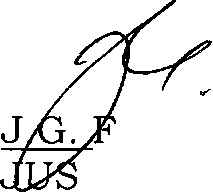IN THE SUPREME COURT OF SWAZILAND
HELD AT MBABANE
CASE NO. 21/09
In the matter between:
KISLON SHONGWE
APPELLANT
v
JULUKA MERRIMAN MABUZA
RESPONDENT
CORAM
J.G. FOXCROFT, JA A.M. EBRAHIM, JA T.S. MASUKU, AJA
FOR THE APPELLANT FOR THE RESPONDENT
T.R. MASEKO MR. B.S. DLAMINI
JUDGMENT
Ebrahim J.A.
The parties in this matter entered into an agreement in terms of which the respondent alleges that he purchased a piece of
land from the appellant. The appellant subsequently cancelled the sale. The respondent being dissatisfied with the cancellation of the agreement sought redress in the High Court where he sought:
(a) an order declaring the purported cancellation of the
sale "wrongful and unlawful" and
(b) an order directing the appellant to comply with the
terms of the Deed of Sale entered between the parties.
(c) In the alternative he sought an order that the
appellant refund the sum of E78,556.56 to her
being the amount she had paid to the appellant
after the signing of the Deed of Sale. She also
sought costs of suit.
When this matter came before the learned judge a quo the appellant raised two points in limine namely that the respondent had no cause of action as he had lawfully cancelled the agreement entered into between them and that he had repaid whatever monies he had received from the respondent in full and final settlement. The appellant also took the point in limine that there was a serious dispute of fact between the parties which was incapable of resolution on the papers.
The learned judge in his judgment made the following observation at paragraph 6: "This judgment is concerned with these two points in limine".
After considering the first point raised in limine relating to the validity of the cancellation of the sale agreement, the learned judge a quo reached the conclusion that:
"the reasons advanced by the respondent (Shongwe) for attempting to cancel the agreement are not lawful reasons. I find that the two points in limine raised by the respondent cannot succeed."
No reasons were given in the judgment for the dismissal of the second point in limine which raised:
"a serious dispute of fact relating to the amount paid by the applicant and received by the respondent, which dispute is incapable of resolution by affidavit".
(Judgment, paragraph [5]).
Having dismissed both points in limine, the learned judge then proceeded to make the following order:
"In the result, for the aforegoing reasons the application is granted in terms of prayer (a), (b), (c) and (d) of the Notice of Motion".
This is where the learned judge erred. Nowhere in his judgment does it appear that he gave consideration to the merits of the dispute between the parties, and, in particular, the dispute of fact apparent on the affidavit. On the contrary it was his assertion that the issue before him related solely to the two points in limine raised. There is no indication in his judgment that he considered the merits. There is therefore force in the appellant's assertion that as the court below was dealing with the points in limine only and not the merits, it was not open to the learned judge to make the order he made.
Accordingly the appeal is allowed with costs. The matter is remitted to the High Court for further hearing, preferably before a judge who has not dealt with this matter before.
A.M. EBRAHIM JUSTICE OF APPEAL
OXCROFT TICE OF APPEAL T.S. KU STICE OF APPEAL ACTIN![]()

![]()

I agree
I agree
Delivered in open court at Mbabane on this day of
November, 2009.